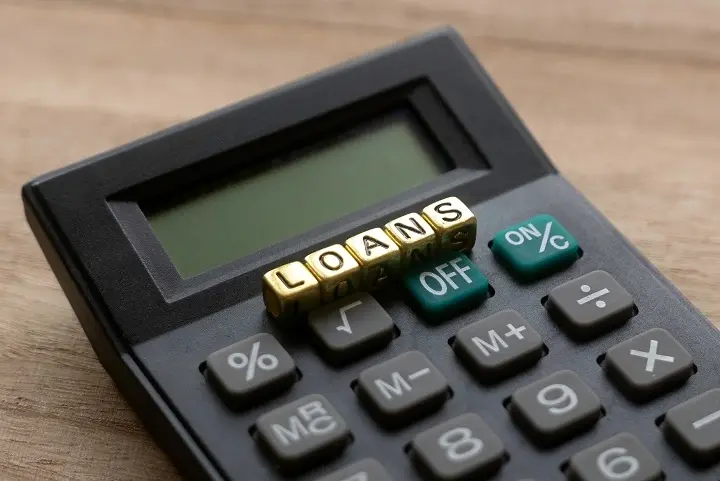
For many companies navigating the difficult circumstances brought about by the COVID-19 epidemic, the Paycheck Protection Program (PPP) has been a lifeline. Under administration by the Small Business Administration (SBA), this government loan program sought to assist companies so they could retain staff members on payroll and cover running costs. Not everyone, meanwhile, qualifies for a PPP loan. We will explore the eligibility requirements and go over who is not qualified for a PPP loan in this post.
What is the PPP Loan?
Introduced by the U.S. Small Business Administration (SBA) in reaction to the COVID-19 epidemic, the PPP loan—also known as the Paycheck Protection Program loan—is a financial assistance effort. It seeks to help nonprofits and small companies impacted by the epidemic's financial fallout. The loan is meant to assist companies in paying utilities, rent, wages, and other such running expenditures. It offers good conditions, including low interest rates and, should qualified costs be spent, loan forgiveness. Support for failing companies and job preservation during these difficult times have come mostly from the PPP loan.
Ready to leave bad credit behind? Call (888) 803-7889 for expert assistance.
Who is Not Eligible for a PPP Loan?
1. Incarcerated Individuals
Incarcerated people are among the most clear exceptions from PPP loan eligibility. You are not qualified for a PPP loan if you are now behind bars. The initiative is meant to assist companies and their staff; those under detention are not included.
2. Businesses Engaged in Illegal Activities
Businesses engaging in illicit activities—that is, those involved in gambling, illegal narcotics, or other forbidden activity—are not qualified for PPP loans. The initiative is meant to help respectable companies struggling economically because of the epidemic.
3. Entities Owned by Government Officials
PPP loans usually do not apply to entities owned by federal, state, or municipal government representatives. This will help to avoid conflicts of interest and guarantee equitable and objective distribution of the money.
4. Businesses with Prior Fraud Convictions
Companies that have been found guilty of fraud or another financial crime during the last five years are not eligible for PPP financing. This clause is meant to protect the integrity of the program and stop money from flowing to organizations'' records of dishonesty.
5. Businesses that Have Defaulted on Federal Loans
You could not be qualified for a PPP loan if your company has past defaulted on a federal loan or has an outstanding amount on an SBA loan. Any outstanding debt should be resolved before seeking PPP aid.
6. Delinquent Child Support Obligations
PPP loan eligibility may be denied to people or companies with unpaid child support payments. The priority for the program is guaranteeing adherence to child support responsibilities.
7. Non-U.S. Based Businesses
PPP loans are mostly used to help companies with American headquarters. Should your company not be mostly running within the United States, you could not satisfy the qualifying requirements.
8. Businesses with Excessive Owners' Compensation
The program has rules around owner pay. Should your company pay too much to its owners, your eligibility for a PPP loan might suffer.
Conclusion
Finally, the Paycheck Protection Program has been very helpful for many companies in overcoming the financial difficulties the COVID-19 pandemic presents. Not everyone, meantime, qualifies for a PPP loan. Before seeking help, make sure your company satisfies the qualifying conditions by carefully reviewing them.
Ready to leave bad credit behind? Call (888) 803-7889 for expert assistance.
FAQs
1. Can I apply for a PPP loan if I have a prior bankruptcy?
While a prior bankruptcy may not automatically disqualify you, it's essential to review the specific eligibility criteria and consult with your lender.
2. Are nonprofit organizations eligible for PPP loans?
Yes, nonprofit organizations are generally eligible for PPP loans, provided they meet the program's requirements.
3. Can sole proprietors apply for PPP loans?
Yes, sole proprietors can apply for PPP loans and are eligible if they meet the program's criteria.
4. Is there a deadline for applying for a PPP loan?
The deadline for applying for PPP loans has passed. The program was initially set to expire but may be extended in the future based on government decisions.
5. Can I use PPP loan funds for any purpose?
PPP loan funds are primarily intended for covering payroll costs, rent, mortgage interest, utilities, and other essential business expenses. Ensure you use the funds in accordance with the program's guidelines.
Ready to leave bad credit behind? Call (888) 803-7889 for expert assistance.
Resource
Understanding Credit Scores: Why Did My Score Drop?
How to Remove old Addresses from my Credit Reports?
Unlocking the Door to Homeownership : How to Qualify for a Mortgage
Debunking Common Credit Repair Myths Separating Fact from Fiction